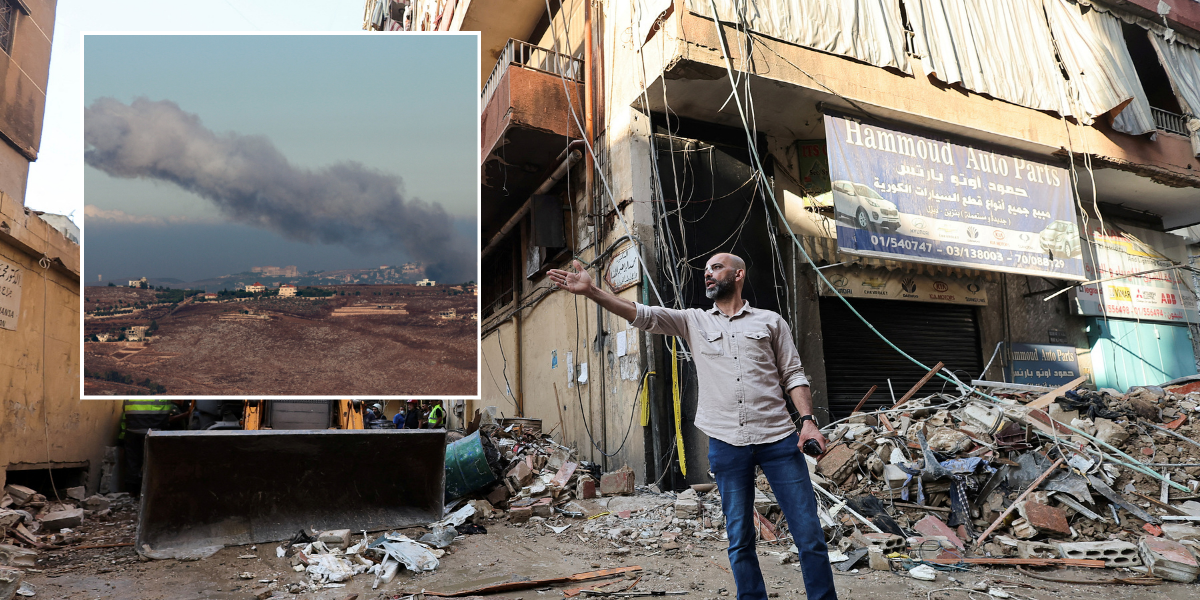The Escalating Crisis in Lebanon: A Call for Urgent Action
As tensions escalate in the Middle East, the situation in Lebanon has reached a critical juncture. With Israel preparing for a potential ground invasion and the UK Border Force mobilizing to assist trapped Britons, the urgency of the crisis cannot be overstated. This article delves into the latest developments, the geopolitical implications, and the human impact of the ongoing conflict.
UK Border Force Steps In
In response to the deteriorating security situation in Lebanon, officers from the UK Border Force are racing against time to help British nationals escape the country. The urgency of this operation is underscored by the imminent threat posed by Israel’s military actions, which have intensified in recent days. Prime Minister Sir Keir Starmer has indicated that deploying troops on the ground to facilitate evacuations remains a possibility, following the dispatch of 700 additional soldiers to Cyprus.
Hezbollah’s Call to Arms
The conflict has been further complicated by Hezbollah’s reported request to Iran to launch retaliatory attacks against Israel. This request comes in the wake of the assassination of Hamas’s political leader, Ismail Haniyeh, which has heightened tensions across the region. The Iranian leadership’s response remains uncertain, but the potential for a broader conflict looms large.
International Diplomatic Efforts
In a bid to de-escalate the situation, the United States, France, and several allies have called for an immediate 21-day ceasefire along the Israel-Lebanon border during a United Nations meeting in New York. A senior Biden administration official emphasized that this ceasefire would facilitate negotiations aimed at achieving a diplomatic resolution. However, the effectiveness of these diplomatic efforts remains to be seen, especially given the ongoing military actions.
The Human Cost of Conflict
The human toll of the conflict has been staggering. Reports indicate that Israeli airstrikes have resulted in over 550 casualties in Lebanon, marking the deadliest day since the end of the Lebanese civil war in 1990. Hospitals across the country are overwhelmed with the wounded, and the humanitarian crisis is deepening. Chloe Lewin, a 24-year-old freelance journalist based in Beirut, shared her harrowing experience of trying to flee the country, highlighting the challenges faced by many as flights are fully booked or canceled.
Israeli Military Operations
The Israeli military has called up two brigades of reservists, totaling around 4,000 soldiers, in preparation for operations along the northern border. Lt. Gen. Herzi Halevi stated, "You hear the jets overhead; we have been striking all day," indicating a relentless campaign aimed at degrading Hezbollah’s capabilities. Israeli Prime Minister Benjamin Netanyahu has vowed to intensify military actions, asserting that Hezbollah is facing unprecedented challenges.
The Geopolitical Landscape
The ongoing conflict has significant implications for regional stability. The Biden administration has faced mounting pressure to secure a ceasefire in Gaza, and the violence in Lebanon adds to the complexity of the situation. President Biden acknowledged the possibility of all-out war but emphasized that a diplomatic settlement remains a priority. The stakes are high, as the conflict threatens to destabilize not only Lebanon but also the broader Middle East.
Conclusion
As the situation in Lebanon continues to evolve, the international community must remain vigilant and proactive in seeking a resolution. The humanitarian crisis demands urgent attention, and diplomatic efforts must be prioritized to prevent further escalation. The lives of countless individuals hang in the balance, and the world watches closely as events unfold in this volatile region. The call for peace and stability has never been more urgent.
